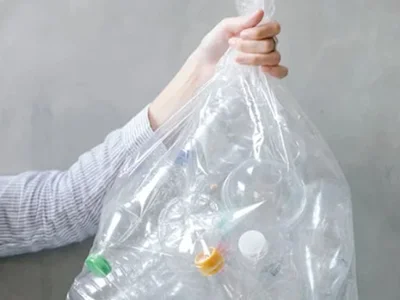The smart Trick of Reclaim Waste That Nobody is Talking About
The smart Trick of Reclaim Waste That Nobody is Talking About
Blog Article
Getting The Reclaim Waste To Work
Table of Contents8 Simple Techniques For Reclaim WasteReclaim Waste Things To Know Before You BuyAbout Reclaim WasteReclaim Waste Fundamentals ExplainedSome Known Details About Reclaim Waste
Explore the kinds, occurrences, and kinds of liquid waste. Domestic sewer waste describes the waste and products from a domestic septic container. This sort of waste is created by human beings in residences, institutions, and other structures. This only includes sewage-disposal tanks that have a drainpipe field. The correct administration and disposal of domestic sewer waste need fluid waste to be transferred to a sewage therapy plant where the appropriate techniques and equipment are used to purify and take care of waste.
Business waste usually includes potential risks, such as combustible materials or a mixture of fluid and strong waste items, and calls for an advanced and thorough disposal procedure. The disposal of business waste usually involves the filtration of waste before transport to ensure risk-free and proper disposal. Industrial waste is developed from byproducts and runoff of commercial procedures and production.
This sort of waste can not use the exact same sewer monitoring transportation or processes as septic or industrial fluids. The commercial waste management process needs the inspection and testing of liquid waste prior to it undertakes the disposal procedure (liquid waste removal melbourne). Runoff waste is the liquid waste that comes from overflow and excess stormwater in very populated areas or cities
Drainage waste can create contamination and flooding if not handled properly. Ensuring correct waste monitoring can stop catastrophes and reduce ecological damage.
The Buzz on Reclaim Waste
Call PROS Providers today to learn more about our waste management and disposal solutions and the appropriate means to take care of the liquid waste you generate.
(https://fliphtml5.com/homepage/kekhp)Do you know what happens to your water when you end, flush the toilet or drain the cleaning device? No? Well, it deserves understanding. This so-called 'wastewater' is not just an essential source but, after therapy, will certainly be released to our land, rivers or the sea. Used water from toilets, showers, baths, kitchen sinks, washings and commercial processes is called wastewater.

water utilized to cool down equipment or clean plant and equipment). Stormwater, a kind of wastewater, is drainage that streams from agricultural and urban areas such as roof coverings, parks, gardens, roads, courses and seamless gutters right into stormwater drains, after rainfall. Stormwater streams without treatment directly to local creeks or rivers, at some point reaching the sea.
All about Reclaim Waste
In Queensland, the majority of wastewater is dealt with at sewer therapy plants. Wastewater is transported from domestic or commercial websites via a system of sewers and pump stations, called sewage reticulation, to a sewage treatment plant. City governments build, preserve and run most sewage therapy plants. Operators are licensed under the Environmental Protection Act 1994 to discharge treated wastewater at an acceptable environmental standard right into rivers.
The Department of Natural Resources recommends city governments about handling, operating and keeping sewage systems and treatment plants. In unsewered areas, regional governments may need homeowners to set up individual or home sewage treatment systems to deal with residential wastewater from toilets, kitchens, restrooms and laundries. The Division of Natural Resources authorizes the usage of home systems when they are shown to be efficient.
Many stormwater receives no therapy. In some brand-new class, treatment of some stormwater to eliminate litter, sand and crushed rock has begun using gross toxin catches. Wastewater treatment happens in four phases: Eliminates solid issue. Larger solids, such as plastics and various other things mistakenly discharged to sewers, are removed when wastewater is passed through displays.
Utilizes tiny living organisms recognizes as micro-organisms to damage down and remove staying liquified wastes and great bits. Micro-organisms and wastes are included in the sludge.
The Definitive Guide to Reclaim Waste
Nutrient removal is not available whatsoever check out here sewer therapy plants due to the fact that it calls for expensive specialised equipment. It is becoming much more common in Queensland. Clear liquid effluent produced after treatment may still contain disease-causing micro-organisms. If this effluent is released into waterways such as rivers or the sea, the micro-organisms will eventually die out.

This generally suggests wastewater has actually to be dealt with or pollutants eliminated before it can be discharged to rivers. A lot of wastewater streams into the sewerage system. Under the Act, local federal governments provide authorizations and licences for environmentally pertinent tasks (Periods) including wastewater launches that may have a neighborhood effect. The department carries out approvals and licences to Ages involving wastewater releases that could have a regional or statewide impact.
10 Simple Techniques For Reclaim Waste
Tracking supplies valid info concerning water quality and can verify that licence problems are being met. The information acquired with tracking supplies the basis for making water quality decisions.
Report this page